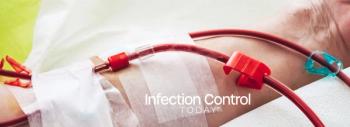
Cardinal Health Recalls 9.1 Million Potentially Tainted Surgical Gowns
Siyang HolyMed in China, the vendor used by Cardinal Health to make the gowns, did so at 2 unapproved sites where the gowns were exposed to air particulate and other contaminants. Employees also ate in the production area.
A total of 9.1 million AAMI Level 3 surgical gowns have been voluntarily recalled by Cardinal Health after it was discovered that a contract manufacturer produced the gowns in unapproved locations that were not up to environmental standards and were not registered with the US Food and Drug Administration (FDA).
Of the 9.1 million units produced, 7.7 million of the items had already been distributed to 2807 facilities. Cardinal Health initiated the recall on January 21 because the vendor-Siyang HolyMed in China-manufactured the gowns at locations that had not been approved by the FDA and were not qualified by the company either, Cardinal Health said in a
Erica Lewis, a Cardinal Health spokeswoman, tells Infection Control Today® that “Siyang HolyMed was relying upon 2 sites that were neither registered with the FDA nor qualified by Cardinal Health to manufacture surgical gowns for Cardinal Health. Concerns include: the unapproved site we investigated was an open environment where windows were open and gowns were exposed to air particulate and other contaminants. The site did not provide hand sanitation, and operators were seen eating in the production area.”
As ICT®
When it learned about the flawed gowns, Cardinal Health investigated, quarantined the gowns, placed a hold on distribution of the gowns and notified its customers to ensure that the affected gowns were removed from use. About 1.4 million of the gowns were produced but not distributed.
Gowns are classified into 4 levels, with Level 3 gowns providing moderate risk protection. They are used in a wide range of surgical procedures, such as open-heart surgery and knee replacements. They’re meant to protect both patients and healthcare professionals from possible transfer of body fluids and pathogens.
“I think it is important to know that during the manufacturing process, gowns are assembled and then shipped to sterilization sites,” Lewis said. “Post-manufacturing sterilization is calibrated to the known bioburden. Per the industry process, sterilization was done after the gowns were assembled at these 2 non-registered, non-qualified sites. However, since Cardinal Health currently has no credible data on the nature of the bioburden from either of the unapproved sites, we cannot provide assurance that the affected gowns were sterile after the sterilization process.”
Cardinal Health ended its relationship with Siyang HolyMed. In addition, as of early January, Siyang HolyMed is no longer registered with the FDA.
On January 17, Jeffrey E. Shuren MD, JD, director of the FDA’s Center for Devices and Radiological Health (CDRH), warned that one of the ancillary problems is that there may not be enough Level 3 gowns to go around now, but promised to “mitigate any adverse patient impact.”
Cardinal Health said in its release that “to help address recall-related supply shortages, we have increased our own production of similar products and our employees have been working to identify alternative products. In many cases, we have been working with industry partners who offer competing products. We are also offering AAMI Level 4 Gowns to help bridge the supply gap.”
Newsletter
Stay prepared and protected with Infection Control Today's newsletter, delivering essential updates, best practices, and expert insights for infection preventionists.




